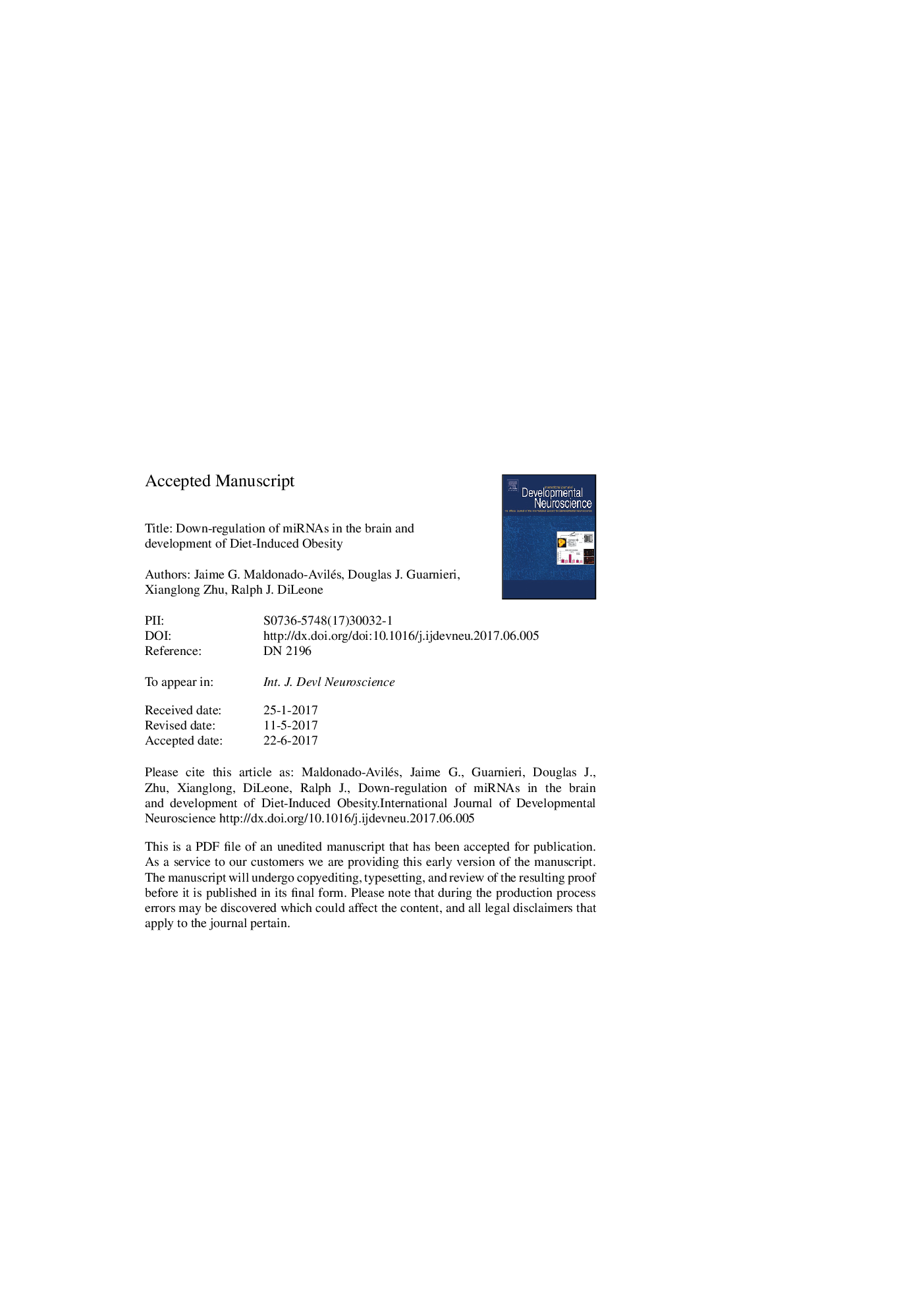| Article ID | Journal | Published Year | Pages | File Type |
|---|---|---|---|---|
| 8626144 | International Journal of Developmental Neuroscience | 2018 | 20 Pages |
Abstract
Novel therapeutic interventions for obesity and comorbid conditions require knowledge of the molecular elements playing a role in the development of obesity. Chronic low-grade inflammation has been consistently reported in obese individuals. In this study, we first determined whether key molecular modulators of inflammation, microRNA-155 (miR-155) and microRNA-146a (miR-146a), are regulated by an obesogenic diet within brain regions associated with reward, metabolism and energy balance. C57BL/6J mice were chronically exposed to a high-fat diet (HFD) or a standard chow (CTL). Significant reductions in the levels of miR-155 (82%) and miR-146a (41%) levels were observed within the nucleus accumbens of HFD mice compared to CTL. Further analysis of miR-155 regulation showed no significant changes in levels across peripheral tissue (white adipose, spleen, kidney or liver) between HFD and CTL mice. The effect of lower miR-155 on the development of obesity was determined by exposing wild-type (WT) and miR-155 knockout mice (miR-155 KO) to HFD. Male miR-155 KO gained significantly more weight than WT littermates. Metabolic analyses revealed that miR-155 KO significantly ate more HFD compared to WT, without differing in other metabolic measures including energy expenditure. Together, these data show that miR-155 is physiologically down-regulated after intake of an obesogenic diet, and that loss of miR-155 increases intake of an obesogenic diet. Moreover, these findings shed light on a potential miRNA-based mechanism contributing to the development of diet-induced obesity.
Related Topics
Life Sciences
Biochemistry, Genetics and Molecular Biology
Developmental Biology
Authors
Jaime G. Maldonado-Avilés, Douglas J. Guarnieri, Xianglong Zhu, Ralph J. DiLeone,
